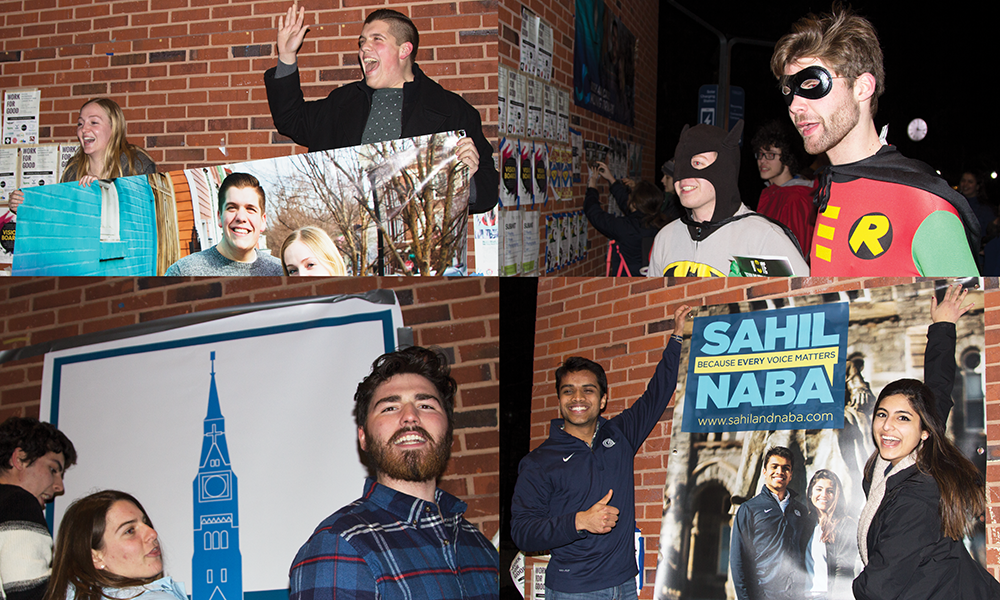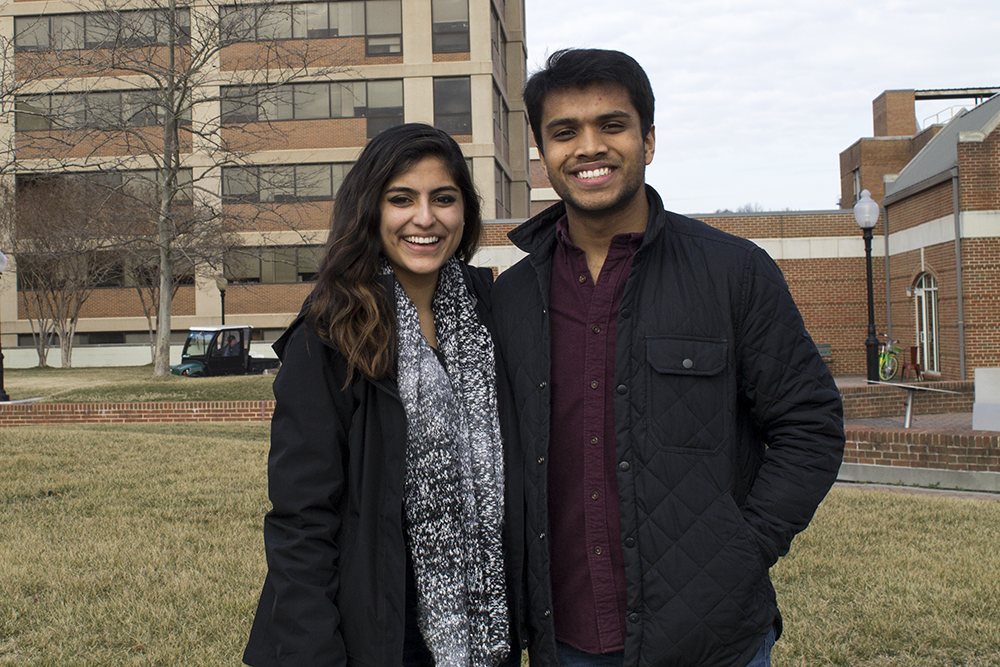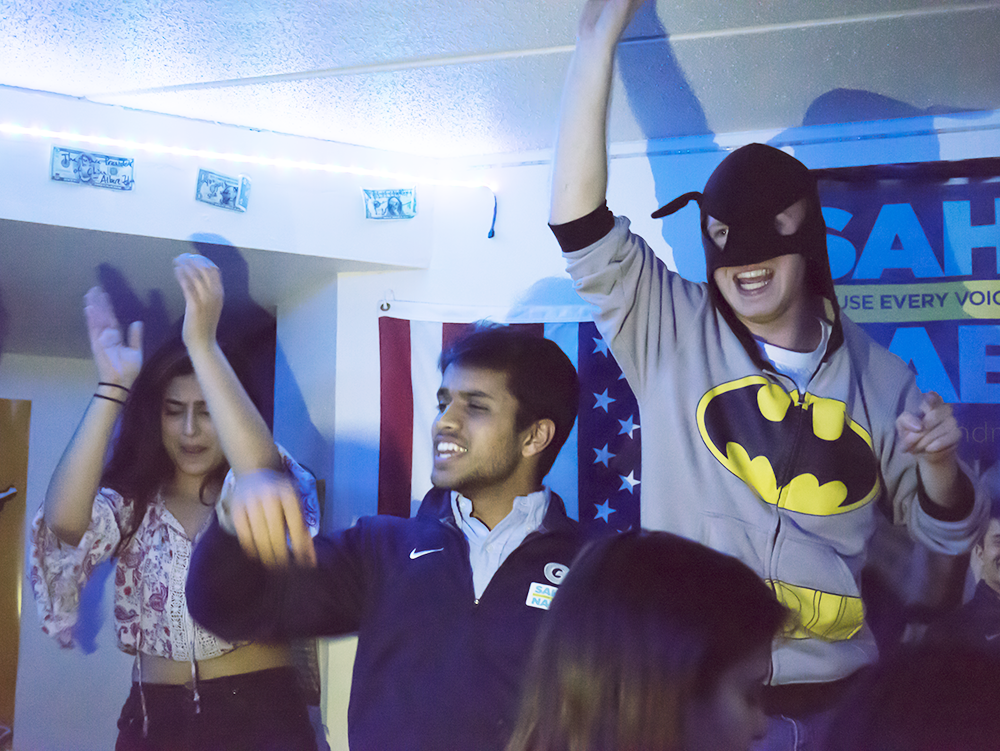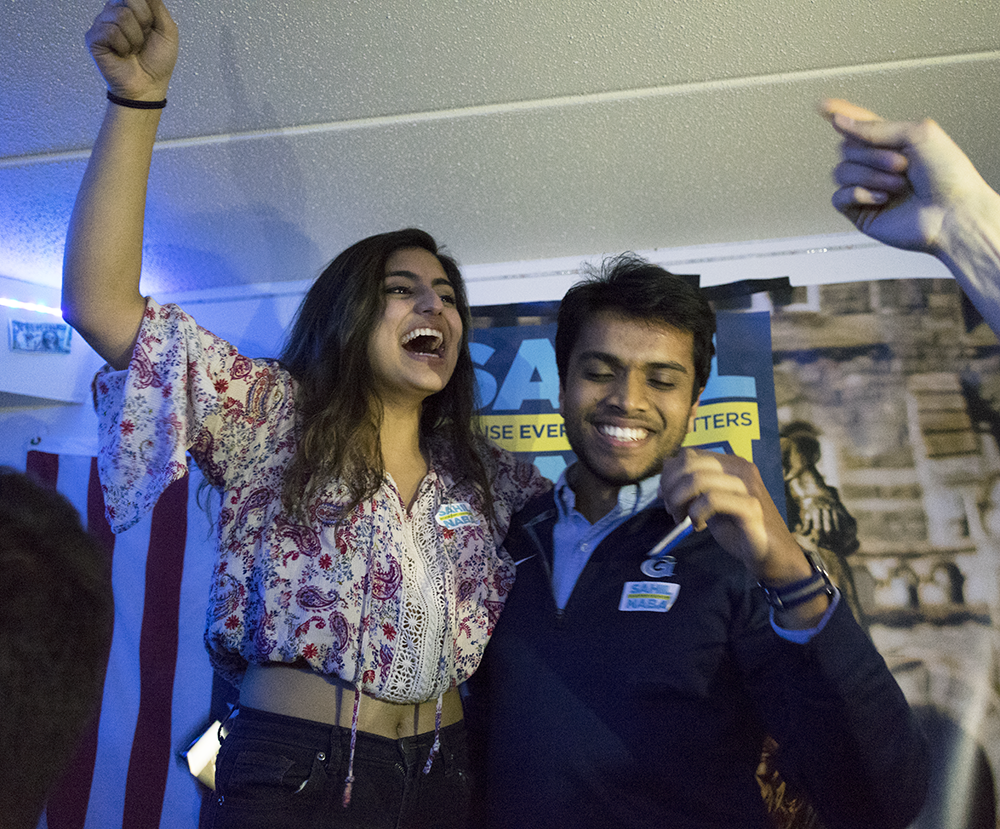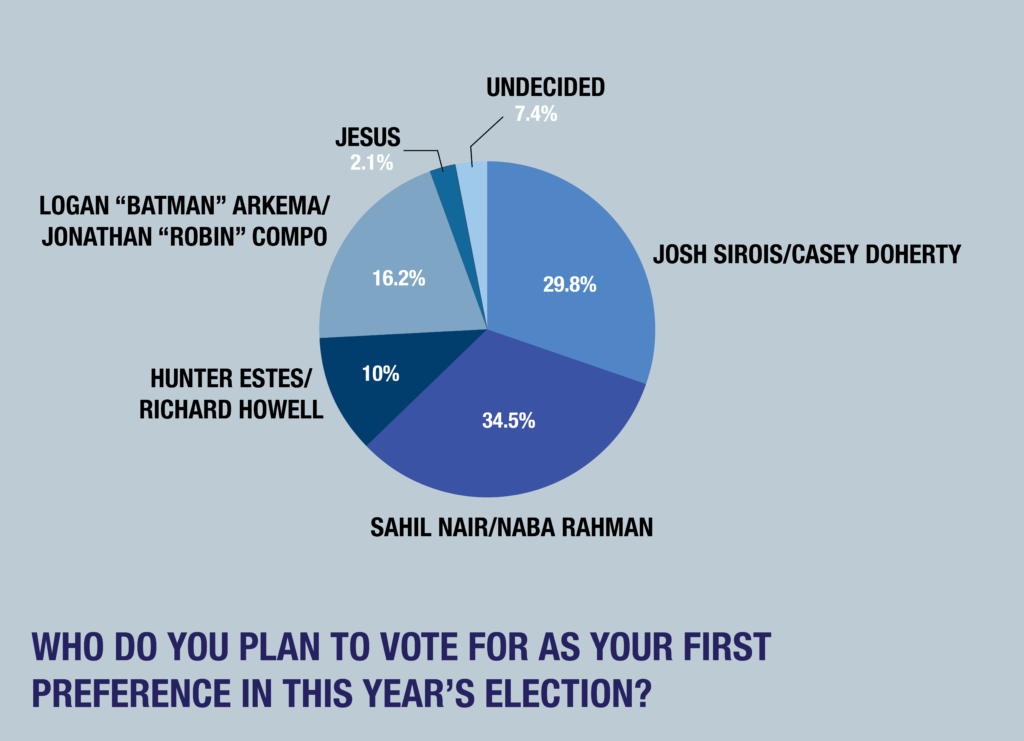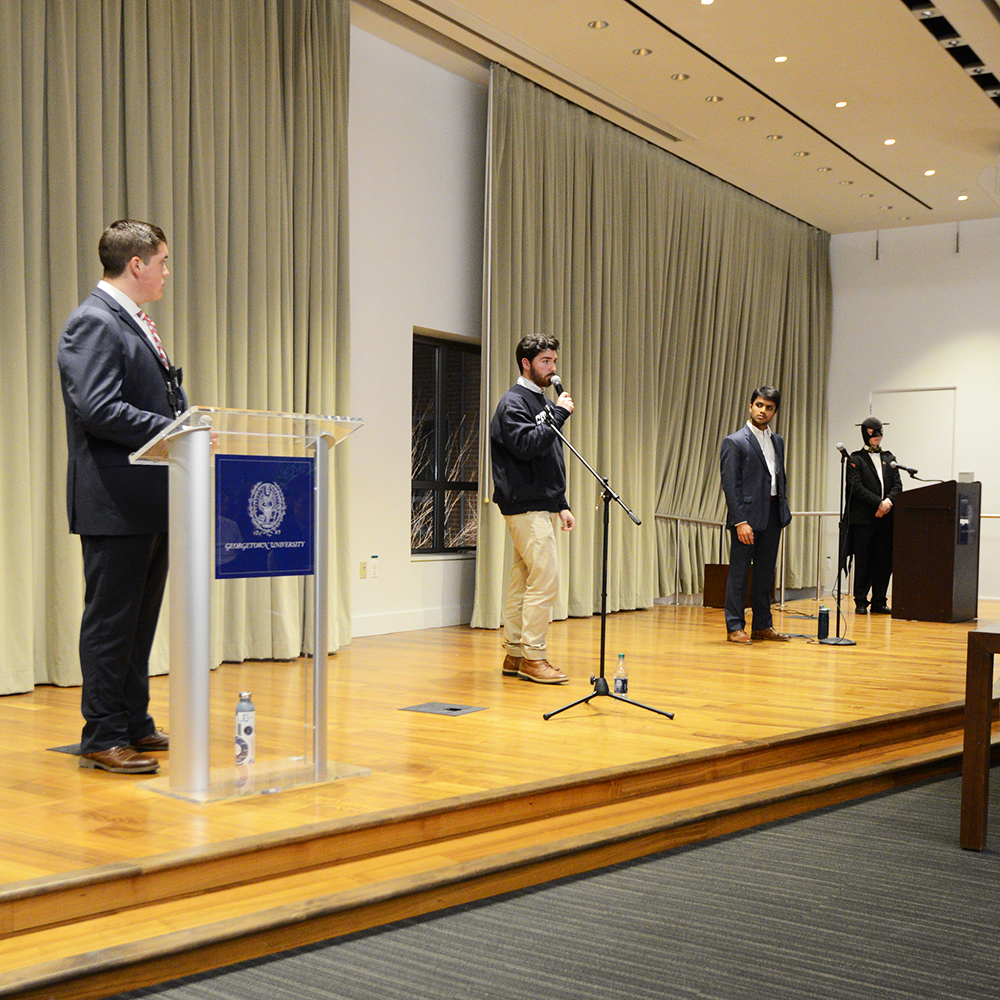When Sahil Nair (SFS ’19) and Naba Rahman (SFS ’19) first met on a national debate circuit their senior year of high school, they never would have anticipated that four years later they would run in the Georgetown University Student Association’s 2018 executive election.
The pair promises to amplify student voices, running on the campaign slogan “Because Every Voice Matters.” Nair and Rahman have defined the executive’s primary role as facilitating students’ efforts and ideas. With limited GUSA experience and a less detailed policy platform compared to their opponents’, they are seeking to sell voters on their outside leadership roles and relationship-building skills.
“We are not here to be the face of every diversity group. We are here though to help those voices finally get a platform,” Rahman said in an interview with The Hoya. “Our job is to get them a seat at the table.”
Nair is running for president with Rahman as vice president. They face satirical ticket Logan Arkema (COL ’20) and Jonathan Compo (COL ’20), Hunter Estes (SFS ’19) and Richard Howell (SFS’19), and Josh Sirois (SFS ’20) and Casey Doherty (COL ’20) in the Feb. 22 election.

Nair is director of external outreach at Innovo Consulting, a group that connects social entrepreneurs and nonprofit organizations to Georgetown students. He was born in India, but moved with his family to Kentucky when two years old, where he was the only person of color in his elementary school and the first student from his high school to attend Georgetown.
Rahman was the secretary general of the National Collegiate Security Conference, a model United Nations conference for college students, last semester and has been involved with the Social Innovation and Public Service Fund, a $1.5 million student-run fund that allocates grant money to student and alumni social ventures. A Mississippi native, Rahman said her experiences growing up shaped their campaign’s main promise.
“I am Muslim, Pakistani and I’m a woman, so for me I always found myself never really part of the group,” Rahman said.
The pair began discussing a potential ticket in mid-November over lunch in O’Donovan Hall. Rahman first approached Nair with the idea, according to him.
“It was something Naba was thinking about seriously first,” Nair said. “I then came back to her and said this is not only something I think you should just do but something we should do together.”
Nair and Rahman are running on a broad platform covering 30 policy areas. Their platform is built on three themes: inclusion, opportunity and accountability. Rahman said GUSA alienates most Georgetown students, which the pair seek to rectify by actively engaging more student clubs.
Nair emphasized the participatory nature of their platform. Many of their points emphasize dialogue, soliciting student input on issues and connecting students to relevant campus resources.
“Naba and I are running on the credo that every voice matters,” Nair said. “The way we want to organize this campaign and this administration is increasing the base-line quality of a Georgetown students experience here.”
In particular, the pair seek to prioritize mental and sexual health. Nair and Rahman said they plan to increase funding for the mental health stipend, which will provide off-campus mental health support for 10 to 20 students with demonstrated financial need, and offer private weekly STI screenings at the student health center.
Academic affairs are another priority for the ticket. Nair wants Georgetown to offer college minor programs to students in all undergraduate schools and to schedule more study days before final exams.
Their platform also includes increased funding for GUSA Fund — a discretionary budget that directs funds from the student activities fee — from $15,000 to $20,000. They also plan to direct the funds resources to three key areas: student wellness, innovation and diversity and inclusion.
Nair and Rahman emphasized the role they would play in facilitating other students’ ideas in addition to promoting their own priorities. Rahman said GUSA currently places the responsibility on students to seek out GUSA’s help.
“That should not be the case,” Rahman said. “The onus should not be on you as students, rather it should be on us as GUSA to reach out to you.”
The pair proposed community advisory groups in which student groups would get face-to-face time with the executive on a rotating basis. Rahman said this open-door policy would allow more students the chance to voice their opinions.
A potential weakness for the pair lies in their relatively limited GUSA experience and their lack of relationships with GUSA leadership and university administrators, as Nair and Rahman acknowledged. Rahman served on GUSA’s Federal and D.C. Relations committee, a part of the GUSA executive, for six months while Nair has no past GUSA experience.
“Sahil and I are not immune to the fact that we do not have the GUSA experience that some other people may,” Rahman said.
Nair said the pair would use their experience as leaders in other student organizations to develop relationships with administrators. He added he is an “ideas-driven person” and “an individual that enjoys building relationships and communicating.”
Their external experiences in other student organizations provides the pair with a perspective on where GUSA’s shortcomings are, Rahman said. “We’ve both seen what GUSA looks like from the outside, and we have seen the resources that are available but are not communicated out nor are connected to the student body.”
Another potential liability for the campaign is Rahman’s plan not to stay on campus for the summer. She has accepted a summer internship with Morgan Stanley in New York.
Per GUSA bylaws, the president must stay on campus for the duration of the summer. While there is no such requirement for vice presidents, vice presidential candidates Doherty and Howell have committed to staying in Washington, D.C., if elected. Rahman pledged to commute to D.C. on weekends.
“I’ll be going back and forth, it’s been done before, it can be done again,” Rahman said. “It is a bit foolish to think that just because the two executives are here in D.C., the entire GUSA administration is going to be running.”
After speaking with current GUSA President Kamar Mack (COL ’19), Nair said they plan to involve their policy heads as much as possible over the summer to prepare for the academic year.
Nair emphasized GUSA’s influence on campus, particularly as a tool for agenda-setting.
“When GUSA talks about an issue, it’s what this campus talks about, it’s what our publications write about and it’s what our administrations are going to be hearing about,” Nair said. “So being participatory and soliciting those ideas from students is exactly what GUSA should be doing.”








